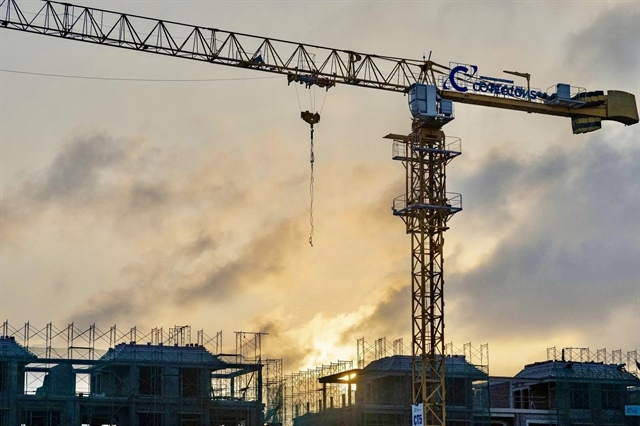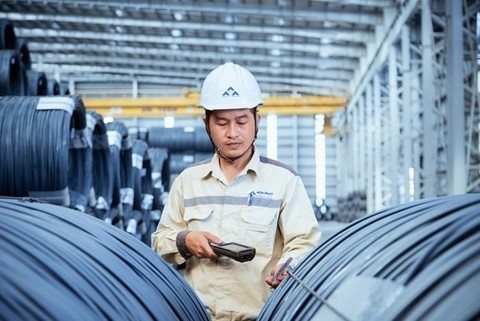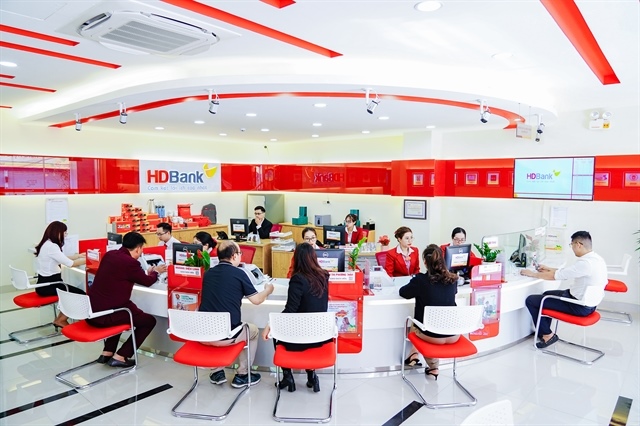The state’s giants and the huge debts
The state’s giants and the huge debts
Not only the Vietnam Shipping Industry Group (Vinashin), but the Vietnam National Shipping Lines Corporation (Vinalines) have been found as the big debtors. And no one would get surprised if more names of other state owned business giants appear on local newspapers for their “loss achievements.”
The inspectors’ report showed that irrecoverable debts of Vinalines have reached 23,063 billion dong. The corporation bought 73 ships from foreign sources worth 23 trillion dong. However, 17 of them had been used for 15-30 years before they were sold to Vinalines. 34 ships have been reportedly incurring heavy losses, and some of the ships have been re-sold.
Wrongdoings were found also in many other investment deals. Vinalines bought a floating dock which had been used for 43 years; even though the current regulations do not allow to buy over-15-year the floating docks.
With the investment deal, Vinalines had to pay 490 billion dong in total, which is equal to 70 percent of the price of a new floating dock,
Of course, Vinalines under the reign of Dung did not report the wrongdoings and the bad business performance. In 2010, Vinalines reported the turnover of 20934 billion dong and the total profit of 1241 billion dong.
Opinions from a well-informed circle said that when Vinashin case was brought to light, the government hoped that Vinalines would helps Vinashin stand up. However, the hope has been dashed when Vinalines has been found as the “second Vinashin.”
Regarding Vinashin, the giant’s situation has not been improved despite the restructuring. The Ministry of Transport, in its report to the National Assembly’s Economics Committee, showed that in the first quarter of 2012, the group’s turnover was 282 billion dong, down by 81 percent in comparison with the same period of 2011.
The report also said that the group’s industrial production value was 960 billion dong, just equal to 10.4 of the yearly plan
The big difficulties have forced Vinashin to propose the Ministry of Finance to escape from punishment for the delay in tax payment. This means that Vinashin still does not have money to pay tax, even though it can borrow loans at the zero percent interest rate from the Vietnam Development Bank, and enjoy a lot of other preferences.
State owned general corporations and economic groups have become the aiming points of the public’s criticism for their weak management ability and big debts.
The report by the Ministry of Finance on the situation of state owned economic groups in 2006-2010 showed that the total assets of the groups had reached 1,799,317 billion dong by the end of 2010. By that time, the total accounts payable of the groups had reached 1,008,290 billion dong, or 1.67 times of the stockholder equity.
Especially, 30 economic groups and general corporations had the ratios of accounts payable on stockholder equity bigger than 3 times.
The Electricity of Vietnam was a typical example, whose then president Dao Van Hung was dismissed.
In April, government’s inspectors reported to the government that 10,676 billion dong had been misused by the Song Da Group. This is a conglomerate gathering the most powerful construction corporations namely Lilama, Licogi, Coma, Song Hong, Song Da and Dic Corp.
The figure is equal to 500 million US dollars, which is much higher than the sum of 124 million dollars the group has borrowed from ADB to serve its restructuring process.
vietnamnet






















